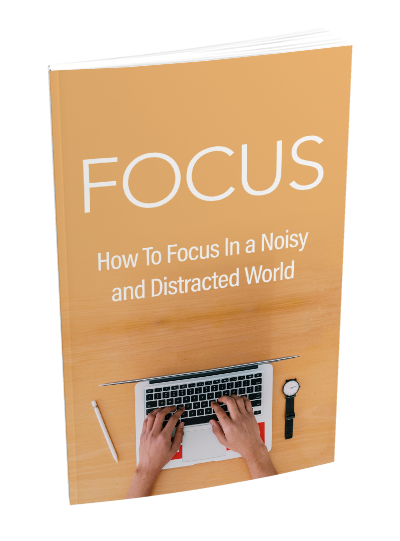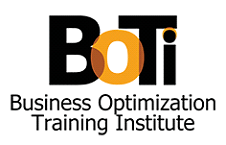Free Training & Career Tips... Subscribe to Get Weekly Career Tips

By Subscribing You are Agreeing to Terms and Conditions
I am one of those people from the Gen X group who grew up in the 1970s and 1980s and entered the workforce as a junior clerk in a bank in the mid-1980s. Back then, we were just starting out in the world of bits and bytes. There were numerous bits of new technology to play around with and we worked on mainframe computers with desktop terminals that hooked into some nebulous system that average people didn’t understand. Computer programmers were earning ten times more than the average person and those who didn’t understand computers had to ‘get with the program’ quickly or suffer the consequences of not being able to keep pace with the status quo.

The arrival of the ‘new normal’ of 2020 that we are currently in the process of getting used to is no different from the shift into the digital age when Gen Xer’s embraced what can now be seen as the ‘old normal’ that had to quickly be adopted at the click of a mouse. What is the common denominator here? The answer is simple: Change. Whether we are now working from home (WFH) when we used to drive into work every day, or we are embracing a completely different way of working in the new gig economy, the shift is the same. Because no matter what changes come at us, the fact of the matter is that we all need to ‘adapt or perish’ as it were. In 1945, H G Wells penned this timeless quote: “Adapt or perish, now as ever, is nature’s inexorable imperative.”
No one is immune to the forces of change that are happening around us. Nevertheless, we are all creatures of habit and human beings generally do not like change, especially when it is forced upon us. When told that we are now ‘working from home’ instead of going into the office every day, there are mixed reactions. It may have been someone’s dream ten years ago to work from home. But, thinking about it and doing it, are two completely different things. I remember how I used to feel when I was sitting at my workstation at the bank and wishing that I didn’t have scores of people running around me all day long. Wondering what it would be like if my desk was at home in a quiet space instead of having noisy people aroud to disturb my concentration. If I was working from home I could choose my own version of noise by putting on my favourite TV channel. But, now that I am working from home and there are no distractions other than what is going on in my own environment, I realise that the sun doesn’t always shine on TV. Let us take a brief look at some of the positive and negative reactions to working from home.
Let’s back track a little. Let’s also be honest with ourselves and admit that what we are dealing with here is a complete paradigm shift from one mode of existence to another. The industrialised world of today has been built by people who left their homes every day to seek out new ideas, people, places and things with which to develop the world and make it a better place.’ Those same people were told by parents and teachers to: ‘Go out there and find a job’. But there is no ‘out there’ anymore.
People used to say: “Leave your problems at work when you get home.” How is this possible when work and home are in the same place?
Now, working from home means that there is little or no distinction between the workplace and home environments.
Married couples who are both working from home at different jobs are ‘sitting on top of each other’ day in, day out. There is no time apart. The children are also being schooled from home. Arguments persist over small things and they all need a break from each other.
It’s fine if you work from home when you live in a good home with a nice garden to walk around in when you need a break. But, what about those who live in an apartment building? What about those who live in poorer conditions and have no dedicated space of their own in which to work? Such individuals welcomed the daily commute and were much better off for it.
There are so many pros and cons to working from home. To list each one extensively would be to miss the point entirely. What we are dealing with here is our ability to successfully and effectively manage change through the paradigm shift that has taken place. Whether change involves shifting your office from a large corporate building to the dining room in your house or suddenly finding yourself in the position of having to manage a remote team the paradigm shift from one state to another is the same.
What ultimately separates the wheat from the chaff in this case is how individuals and groups go about managing the change that is now upon us.
As discussed earlier on in this article, change is at the heart of the ‘new normal’. Let us now take a look at some of the best tips we can use to guide us in managing change as we navigate the way forward.
Some changes can be difficult and disruptive, yet, can still produce positive results. Avoid dwelling on the negative. Instead, focus on the potential new opportunities and benefits that change brings. Focussing on the positive aspects of change will lift your spirits during phases of transition.
When change occurs our first reaction is to resist the change and, often, we may refuse to adapt. Unfortunately, this is not ideal since the only constant we can rely on in this world is change. The sooner we grasp and accept this the better equipped we will be to map our way forward.
One of the main reasons we find change stressful is because change destabilises our sense of control. Often, we feel powerless in the face of change since change brings about a sense of loss of control. The important thing here is not to allow a feeling of powerlessness to overwhelm you and to tackle new challenges with a cool head and a brave heart. Instead of allowing change to destabilise you focus on how you can make the change work in your favour. This will give you a whole new sense of self-empowerment.
The quicker you can make change become more ‘familiar’ to you the better. That means tackling change head-on. If you can quickly assimilate new changes into your daily routine, you will effectively build a new sense of familiar. This will help you to better integrate the change into your daily existence so that it becomes an ‘accepted’ way of doing things.
One of the most important things to remember when facing widescale change is that you are not alone. You can find a new sense of normal during any transition by connecting with like-minded individuals and sharing thoughts and ideas about the change with others. A sense of unity and common ground with others will go a long way towards keeping you grounded during any transition.
Senior Analyst, Business Optimization Training Institute

Copyright text 2024 by Business Optimization Training Institute.